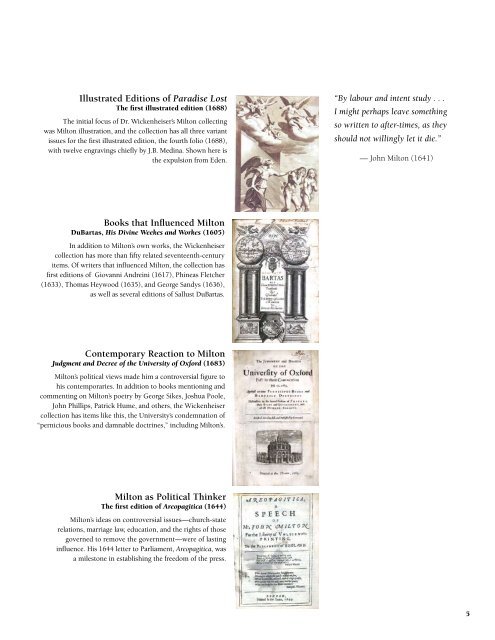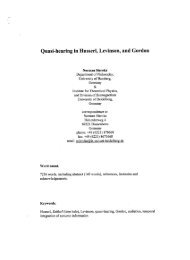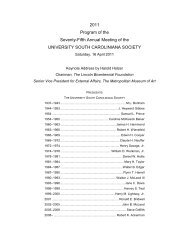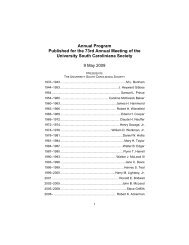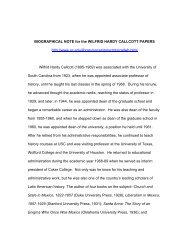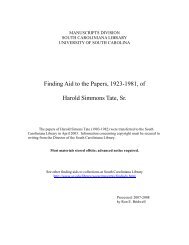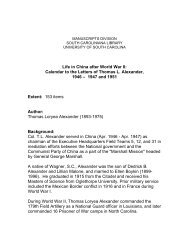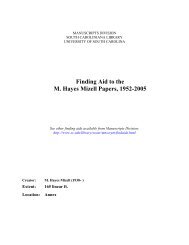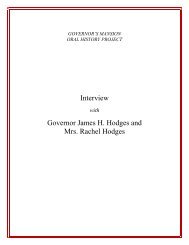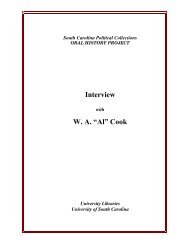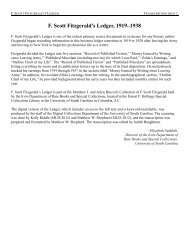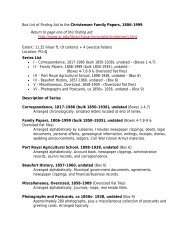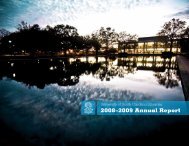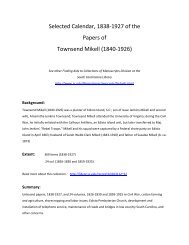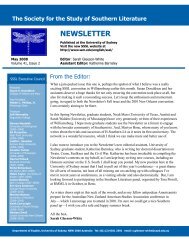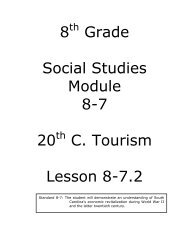Introducing the Robert J. Wickenheiser Collection of John Milton
Introducing the Robert J. Wickenheiser Collection of John Milton
Introducing the Robert J. Wickenheiser Collection of John Milton
Create successful ePaper yourself
Turn your PDF publications into a flip-book with our unique Google optimized e-Paper software.
Illustrated Editions <strong>of</strong> Paradise Lost<br />
The first illustrated edition (1688)<br />
The initial focus <strong>of</strong> Dr. <strong>Wickenheiser</strong>’s <strong>Milton</strong> collecting<br />
was <strong>Milton</strong> illustration, and <strong>the</strong> collection has all three variant<br />
issues for <strong>the</strong> first illustrated edition, <strong>the</strong> fourth folio (1688),<br />
with twelve engravings chiefly by J.B. Medina. Shown here is<br />
<strong>the</strong> expulsion from Eden.<br />
Books that Influenced <strong>Milton</strong><br />
DuBartas, His Divine Weekes and Workes (1605)<br />
In addition to <strong>Milton</strong>’s own works, <strong>the</strong> <strong>Wickenheiser</strong><br />
collection has more than fifty related seventeenth-century<br />
items. Of writers that influenced <strong>Milton</strong>, <strong>the</strong> collection has<br />
first editions <strong>of</strong> Giovanni Andreini (1617), Phineas Fletcher<br />
(1633), Thomas Heywood (1635), and George Sandys (1636),<br />
as well as several editions <strong>of</strong> Sallust DuBartas.<br />
Contemporary Reaction to <strong>Milton</strong><br />
Judgment and Decree <strong>of</strong> <strong>the</strong> University <strong>of</strong> Oxford (1683)<br />
<strong>Milton</strong>’s political views made him a controversial figure to<br />
his contemporaries. In addition to books mentioning and<br />
commenting on <strong>Milton</strong>’s poetry by George Sikes, Joshua Poole,<br />
<strong>John</strong> Phillips, Patrick Hume, and o<strong>the</strong>rs, <strong>the</strong> <strong>Wickenheiser</strong><br />
collection has items like this, <strong>the</strong> University’s condemnation <strong>of</strong><br />
“pernicious books and damnable doctrines,” including <strong>Milton</strong>’s.<br />
<strong>Milton</strong> as Political Thinker<br />
The first edition <strong>of</strong> Areopagitica (1644)<br />
<strong>Milton</strong>’s ideas on controversial issues—church-state<br />
relations, marriage law, education, and <strong>the</strong> rights <strong>of</strong> those<br />
governed to remove <strong>the</strong> government—were <strong>of</strong> lasting<br />
influence. His 1644 letter to Parliament, Areopagitica, was<br />
a milestone in establishing <strong>the</strong> freedom <strong>of</strong> <strong>the</strong> press.<br />
“By labour and intent study . . .<br />
I might perhaps leave something<br />
so written to after-times, as <strong>the</strong>y<br />
should not willingly let it die.”<br />
— <strong>John</strong> <strong>Milton</strong> (1641)<br />
5


